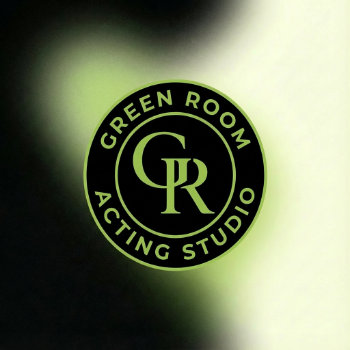One Actors Journey - Reactionary Acting (Green Room Acting Studio)
Wednesday, November 20, 2024 | By: Bret Sexton and Greg James Blount
Today, I have some bittersweet news. My time with Ani has come to an end for now as I begin my next class with a new instructor next month. It is hard to put into words how beneficial Ani's class was for me, both as an actor and a person. If my journey with GRAS had ended today, I would still feel as though I got the most out of my experience. Whether or not I am ready to accept it, I'm no longer just taking acting classes; I am an actor working on my craft. I hope everyone reading this has the chance to experience this feeling. I know brighter days are ahead for all of us.
Poetically, my final class with Ani is arguably the most complex and profound. The script we were given was the longest one we've gotten and included the most characters by far. Initially, I thought this meant we would have a more ensemble session with multiple students reading at a time instead of the normal two. Ani informed us that we would stick with the standard two-actor reading, but the student given the feedback would still only read for one character.
This was interesting because the character I had picked for my performance did not have the most lines, and the script had a portion where I was present for a conversation between two other characters but had no lines of my own to add. I was curious about the feedback I would receive as during my first performance, it felt like there would need to be more material for Ani to help me with. I was just sitting and listening to my partner read for a large portion of the reading.
Boy was I wrong. Ani opened my eyes to a part of acting that is vital to every performance but needs to get more credit. Reactionary acting, at least that's the name I have given it. This is when an actor is performing in a scene while another actor or actors are the ones speaking. In most cases, these reactions are subtle, but they give a real-life feel to the conversations. It sounds silly but think about it. When two of your friends talk, do you shut your brain off and stare blankly into the distance? No, you are taking in and reacting to the information your friends are sharing. This same principle applies to reacting in scenes.
Ani explained that these performances are often more for the audience to take in and digest. They play off the other actors and can take a scene to new heights. All this information is great, but how does it turn out in practice for a new actor? It's not easy. I struggled through my next take as I was unsure how to react when I had nothing to say. Was I overdoing my facial expressions and looking too cartoonish? Were my expressions too subtle, and I looked like a zombie? I was a mess and was happy when the scene was over to see what Ani would say.
She informed me that there was more character development I could create in these moments. In a past blog, I mentioned that we learned about taking your character on a journey in each scene.
While this is much easier to see when you have plenty of lines to get across, no dialogue means this journey requires much more effort to showcase.
For my next take, I thought about my relationship with the other two speaking characters and how my feelings toward them would change based on what digs or snarky comments they made toward one another. I then envisioned two of my friends bickering and then looking at me to see whose side I was on. This led me to play the characters in a way where they didn't like what was being said but still wanted to be friends with both. The result was a complex and nuanced performance. Drawing on real-life experiences can always be a useful resource.
It may sound obvious, but remember that everything you do in a scene matters. Where you are physically in a scene and how you react to your scene partners are just an important as the lines you deliver. They are all pieces to a great puzzle. I can't wait to share what I learn in the next stage of my journey!
#bretsexton #actorsblog #greenroomactingstudio #gregjamesblount #actingstudio #actingclass


Leave a comment
0 Comments